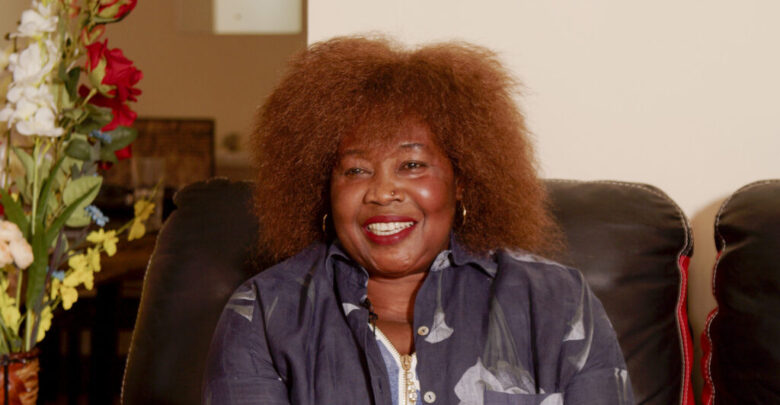

NAIROBI, Kenya — When Covid-patients overwhelmed Kenya’s hospitals, Theophilus Wangata, the lead physician at Precise Healthcare in Nairobi, came up with an ingenious solution: take the hospital to the patients.
“Initially, we had a few patients requesting that we check on them at home, and we soon realized the need to take our services to them,” he told Zenger News.
Wangata said a high percentage of those diagnosed with Covid-19 are asymptomatic, and the government advises them to stay at home to avoid congesting the hospitals.
“This means that more and more people infected with the virus need home-based medical care. Medicine is an evolving field, and innovation is important.”
He has coined a term for it: “housepital.”
Wangata says that as long as a patient does not require the intensive care unit admission or surgery, they can be treated from the comfort of their homes.
“We do most of the tests from the patient’s house. We can send a sonographer with a portable ultrasound machine if the patient requires an ultrasound. We have oxygen cylinders and oxygen concentrators, especially for Covid-19 patients. Anything that is done in a hospital ward can also be done in the house.”
When Rejoice Morgan, a Nairobi housewife, came down with Covid-19 in July, Wangata’s team responded quickly.
“I remember feeling very weak, and by evening my chest felt tight, and I was struggling to breathe,” she told Zenger News.
Her husband, Christophe Morgan, reached out to Precise Healthcare, who rushed to their house.
“My wife was coughing so badly, her shoulders were shaking. She required hospitalization. However, after consultations with the doctors and family members, we agreed to treat her at home since oxygen and intravenous fluids could be administered to her by Precise Healthcare.”
Phoebe Towongo Mogga, a 50-year-old Nairobi business lady, is thankful that Precise Healthcare came through quickly when she contracted the coronavirus in July 2021.

“When I experienced flu-like symptoms, I did not think much of it and consulted with Wangata over the phone, and he prescribed a dose of antibiotics,” she told Zenger News.
“After a couple of days, I knew something was amiss as I was getting worse instead of getting better. I called Wangata and asked him to send a doctor to my home, who arrived in no time with several nurses. As someone attended to me, the others converted my bedroom into a ward. There is a certain peace of mind that comes with knowing that you have a nurse around the clock.”
Wangata, a general practitioner with over ten years of experience, has had the chance to see and learn the latest healthcare inventions during his many travels abroad.
To make “housepital” a reality, he works with a network of medical professionals across the country.
“We vet every doctor, nurse, laboratory technician, or pharmacist on our panel and only work with registered and competent people. We have also partnered with ambulance services and companies with the capacity to airlift patients like Amref Health Africa.”
When Precise Healthcare gets a distress call, they assign a medical consultant to assess the patient.
“Everything has to be done promptly because every second counts. Our team swiftly moves to convert the bedroom into a hospital ward. We observe the Covid-19 protocols very keenly and ensure our professionals wear personal protective equipment. Our Covid-19 management team has treated over 100 patients in their homes.”
Joseph Lelo, the medical director at Amref Flying Doctors, an air ambulance wing of Amref Africa Health, said that home-based care has a significant role in the treatment and recuperation of patients.

“We have seen hospitals overwhelmed in the past, and patients end up in home-based care,” he told Zenger News.
“There should always be a backup plan in case a patient’s condition worsens. And that is where our services come in: to evacuate very sick patients.”
His organization has transferred over 450 patients to various parts of the world, including Yemen and Europe, since the Covid-19 pandemic became a global phenomenon at the beginning of 2020.
“With the right equipment and all Covid-19 protocols observed, the risk of infection is minimal, and it is safe to handle patients. None of our pilots or crew members have contracted Covid-19.”
Though she is still on medication and needs oxygen occasionally, Rejoice did not show signs of distress during her interview with Zenger News.
“Being treated in a familiar environment is reassuring. You do not go through the trauma of being around gravely sick patients or watching people die in a hospital. As a parent, you do not have to worry about your children since they are always around you.”
Wangata said home-based medical care is ideal for patients with weak immunity since they are not exposed to opportunistic infections as often happens in a hospital environment.
“It also cuts off some expenses like paying for a hospital bed. Psychologically, people tend to heal faster when in a familiar environment. Patients can also continue to enjoy their favorite home-cooked meals and listen to their favorite music or TV shows.”
(Edited by Kipchumba Some and Anindita Ghosh)
The post Housepital: Kenyan Doctor Treating Covid-19 Patients In The Comfort Of Their Homes appeared first on Zenger News.





